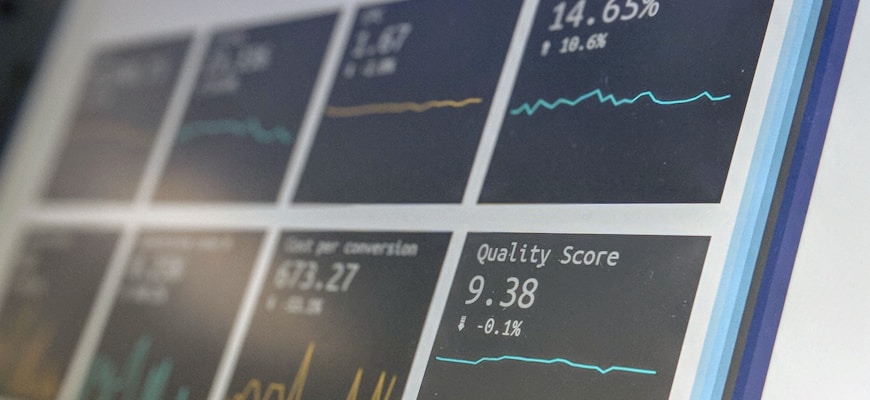Blockchain in Healthcare: Improving Data Security and Sharing

- Understanding the Basics of Blockchain Technology
- Challenges in Data Security in the Healthcare Industry
- Benefits of Implementing Blockchain in Healthcare
- The Role of Smart Contracts in Securing Health Data
- Blockchain Use Cases in Improving Patient Care
- Regulatory Considerations for Blockchain Adoption in Healthcare
Understanding the Basics of Blockchain Technology
Blockchain technology is a decentralized, distributed ledger system that enables secure and transparent transactions without the need for intermediaries. It was originally developed for use in cryptocurrencies like Bitcoin, but its potential applications extend far beyond just digital currencies. In the healthcare industry, blockchain technology has the potential to revolutionize data security and sharing practices, improving trust and efficiency in the system.
One of the key features of blockchain technology is its ability to create a tamper-proof record of transactions. Each block in the blockchain contains a list of transactions, along with a unique identifier called a hash. These blocks are linked together in a chain using cryptographic techniques, making it virtually impossible to alter the data once it has been recorded. This level of security is especially important in healthcare, where the integrity and confidentiality of patient data are paramount.
Another benefit of blockchain technology is its ability to provide real-time access to data across multiple parties. By using a decentralized network of nodes to verify and record transactions, blockchain eliminates the need for centralized databases and intermediaries. This not only streamlines the sharing of information between healthcare providers, insurers, and patients, but also reduces the risk of data breaches and unauthorized access.
In addition to improving data security and sharing, blockchain technology can also enhance the integrity of medical records. By storing patient data in a secure and immutable ledger, healthcare providers can ensure that information is accurate, up-to-date, and easily accessible when needed. This can help to prevent errors, reduce duplication of tests and procedures, and improve the overall quality of care.
Overall, blockchain technology has the potential to transform the healthcare industry by providing a secure, efficient, and transparent way to store and share data. By leveraging the power of decentralized networks and cryptographic techniques, healthcare organizations can improve data security, streamline operations, and ultimately enhance patient care.
Challenges in Data Security in the Healthcare Industry
Data security in the healthcare industry poses significant challenges due to the sensitive nature of patient information. With the increasing digitization of health records, the risk of data breaches and cyber attacks has become a major concern for healthcare organizations. Traditional centralized databases are vulnerable to hacking and unauthorized access, putting patient privacy at risk.
One of the key challenges in data security is the lack of a unified system for securely sharing and accessing patient information across different healthcare providers. This fragmented approach not only hinders the quality of care but also exposes patient data to security threats. Moreover, the use of outdated technology and inadequate security measures further exacerbate the risks associated with data breaches.
Blockchain technology offers a promising solution to address the challenges in data security in the healthcare industry. By utilizing a decentralized and encrypted ledger system, blockchain ensures the integrity and confidentiality of patient data. The use of cryptographic techniques and smart contracts enhances security and transparency in data sharing, reducing the risk of unauthorized access and tampering.
Benefits of Implementing Blockchain in Healthcare
Implementing blockchain in healthcare brings numerous benefits that contribute to improving data security and sharing within the industry. One of the key advantages is the enhanced security protocols that blockchain technology offers. By utilizing cryptographic algorithms and decentralized storage, blockchain ensures that patient data remains secure and tamper-proof. This helps in preventing unauthorized access and potential data breaches, thus safeguarding sensitive information.
Another advantage of implementing blockchain in healthcare is the increased transparency and accountability it provides. With blockchain, all transactions and data exchanges are recorded on a distributed ledger that is visible to all authorized parties. This transparency helps in building trust among stakeholders, such as patients, healthcare providers, and insurers, by providing a clear and immutable record of data sharing and access.
Moreover, blockchain technology enables seamless and efficient sharing of data among different healthcare providers and organizations. Through smart contracts and permissioned access, blockchain allows for real-time access to patient data across various healthcare systems, without compromising security or data integrity. This promotes interoperability and collaboration among different entities in the healthcare ecosystem, ultimately leading to better patient care and outcomes.
In addition, implementing blockchain in healthcare can help in reducing administrative costs and streamlining processes. By eliminating intermediaries and automating data management tasks, blockchain technology can help in reducing overhead costs associated with data storage, sharing, and reconciliation. This not only leads to cost savings for healthcare organizations but also improves the overall efficiency and accuracy of data management processes.
Overall, the benefits of implementing blockchain in healthcare are vast and far-reaching. From enhanced security and transparency to improved data sharing and cost savings, blockchain technology has the potential to revolutionize the healthcare industry and drive positive change for both patients and healthcare providers alike.
The Role of Smart Contracts in Securing Health Data
Smart contracts play a crucial role in enhancing the security of health data in the healthcare industry. These self-executing contracts are built on blockchain technology, providing a tamper-proof and transparent way to store and manage sensitive information. By utilizing smart contracts, healthcare organizations can ensure that only authorized personnel have access to patient data, reducing the risk of data breaches and unauthorized access.
One of the key advantages of using smart contracts in securing health data is the automation of data access control. Through predefined rules and conditions coded into the smart contracts, organizations can enforce strict access controls, ensuring that data is only shared with approved entities. This not only enhances data security but also streamlines the process of sharing information between different healthcare providers, improving overall patient care.
Additionally, smart contracts can help in verifying the authenticity of health data by recording each data transaction on the blockchain. This creates a permanent and immutable record of all data interactions, making it easier to track and audit data access. Moreover, smart contracts can facilitate secure data sharing between healthcare providers, researchers, and patients, fostering collaboration while maintaining data privacy and security.
Blockchain Use Cases in Improving Patient Care
Blockchain technology has the potential to revolutionize patient care in the healthcare industry. By providing a secure and transparent way to store and share medical data, blockchain can significantly improve the quality of care patients receive.
One key use case for blockchain in patient care is in improving data security. With blockchain, patient data is encrypted and stored across a distributed network of computers, making it nearly impossible for hackers to access or manipulate. This increased security can help protect sensitive patient information from data breaches and unauthorized access.
Another important use case for blockchain in patient care is in enhancing data sharing between healthcare providers. By utilizing blockchain technology, healthcare professionals can securely access and share patient data in real-time, leading to more coordinated and efficient care. This seamless sharing of information can help prevent medication errors, reduce duplicate tests, and ultimately improve patient outcomes.
Additionally, blockchain can streamline the process of managing electronic health records (EHRs). By using blockchain to store EHRs, healthcare providers can ensure the integrity and accuracy of patient data while also maintaining patient privacy. This increased efficiency in managing EHRs can lead to better-informed decision-making and more personalized care for patients.
In conclusion, the implementation of blockchain technology in healthcare has the potential to significantly improve patient care by enhancing data security, facilitating data sharing, and streamlining EHR management. As the healthcare industry continues to embrace digital innovation, blockchain stands out as a promising solution to the challenges of data security and sharing in patient care.
Regulatory Considerations for Blockchain Adoption in Healthcare
When considering the adoption of blockchain technology in healthcare, it is crucial to take into account the regulatory landscape. There are several key regulatory considerations that need to be addressed to ensure compliance and smooth integration.
- One important aspect is data privacy regulations such as the Health Insurance Portability and Accountability Act (HIPAA) in the United States. Any blockchain solution in healthcare must comply with these regulations to protect patient information.
- Another consideration is data ownership and consent. Patients should have control over who can access their health data and for what purposes. Blockchain can provide transparency and accountability in data sharing, but consent mechanisms need to be robust.
- Interoperability standards are also essential for the successful adoption of blockchain in healthcare. Different systems and platforms must be able to communicate effectively to ensure seamless data sharing and exchange.
- Regulatory bodies around the world are still developing frameworks for blockchain technology in healthcare. It is important for organizations to stay informed about the latest regulations and guidelines to avoid any compliance issues.
In conclusion, regulatory considerations play a significant role in the successful implementation of blockchain technology in healthcare. By addressing data privacy, ownership, consent, interoperability, and staying up-to-date with regulations, organizations can harness the benefits of blockchain while ensuring compliance with existing laws.





